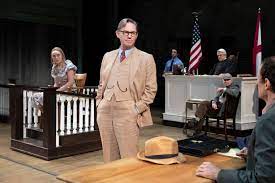 | ||
| ||
 | ||
| ||

| Acting: | |
| The Wall | The Fifth Season |
| Black Chiffon | The Sold Gold Cadillac |
| The Torchbearers | You Can't Take it With You |
| Cheaper by the Dozen | Snow White and The Seven Dwarfs |
| Picnic (Twice) | This Property is Condemned |
| Our Town (Twice) | The Cold Wind and the Warm |
| Special Guest | Tony n' Tina's Wedding |
| Directing: | |
| Carousel (Twice) | Annie Get Your Gun (Twice) |
| The Rape of the Belt | Thurber Carnival |
| Special Guest (Twice) | The Owl and thr Pussycat |
| The Apple Tree | Aria De Capa |
| Subway Circus (Premiere) | Solid Gold Cadillac (Twice) |
| Picnic | Fantastics (Twice) |
| The Property is Condemned | You're a Good Man Charlie Brown |
| Fiddler on the Roof | Godspell (Twice) |
| Annie | Far From The Value of Green |
| Pippin | Our Town |
| Butterflies are Free | Vanities |
| Music Man | Man in The Moon Marigolds |
| Joseph and His Amazing Technicolor Dreamcoat | I Never Saw Another Butterfly |
| Commercials and Print | |
| Coca-Cola | Penney's |
| Wyse men's Store | Pease for Congress |
| First Alert | Gleem Toothpaste Hospice of the Western Reserve |
| Cleveland Indians | |
| Films: | |
| The Christmas Story | American Splendor |
| Media: •Broadwayworld.com--Theater reviewer | |
| |
| |
| |
| |
| |
| |
| |
| |
| |
| |
Berko, Roy, Andrew Wolvin and Darlyn Wolvin. COMMUNICATING: A SOCIAL AND CAREER FOCUS, 1st, 2nd, 3rd, 4th, 5th, 6th, 7th, 8th, 9th, 10th eds. (Boston, MA: Houghton Mifflin).
Wolvin, Andrew, Roy Berko, Darlyn Wolvin, THE PUBLIC SPEAKER/THE PUBLIC LISTENER, 2ND EDITION (Los Angeles: Roxbury Press), 1999
Wolvin, Andrew, Roy Berko, Darlyn Wolvin, INSTRUCTOR’S MANUAL, THE PUBLIC SPEAKER/THE PUBLIC LISTENER, 2ND EDITION (Los Angeles: Roxbury Press), 1999
Berko, Roy and Linda Webster, “Assessment: What is it: Why do we need it? How do we use it?” Popular Measurement (Spring, 1998), pp. 43-44.
Berko, Roy, Sherwyn Morreale, Pamela Cooper and Carolyn Perry,”Communication Standards and Competencies for Kindergarten through Grade 12: The Role of the National Communication Association, Communication Education Volume 47, #2, April, 1998.
Berko, Roy and Linda Webster, “Assessment: What is it? Why do we need it? How do we use it?,” Popular Measurement, Journal of the Institute for Objective Measurement, Volume 1, #1, April 1998.
Roy Berko, Andrew Wolvin, Rebecca Ray, BUSINESS COMMUNICATION IN A CHANGING WORLD (New York: St. Martin’s Press), 1997.
Roy Berko and Joan Aitken, INSTRUCTOR’S MANUAL FOR BUSINESS COMMUNICATION IN A CHANGING WORLD (New York: St. Martin’s Press), 1997.
Roy Berko, Lawrence Rosenfeld, and Larry Samovar, CONNECTING: A CULTURE-SENSITIVE APPROACH TO INTERPERSONAL COMMUNICATION COMPETENCY 2nd ed., (Glenview, Illinois: Scott Foresman), 1997.
Joan Aitken and Roy Berko, INSTRUCTOR’S MANUAL FOR CONNECTING: A CULTURE SENSITIVE APPROACH TO INTERPERSONAL COMMUNICATION COMPETENCY 2nd ed., (Glenview, Illinois: Scott Foresman), 1997.
Berko, Roy and Megan Brooks, Pathways To Careers In Communication, 4th ed. (Annandale, VA: Speech Communication Association), 1995.
Berko, Roy, INCREASING ORAL COMMUNICATION (SPEAKING AND LISTENING) ACHIEVEMENT IN GRADES K-12 (Annandale, VA: Speech Communication Association), 1994.
Berko, Roy, Lawrence Rosenfeld and Larry Samovar, CONNECTING: A CULTURE-SENSITIVE APPROACH TO INTERPERSONAL COMMUNICATION COMPETENCY (Ft. Worth, TX: Harcourt Brace), 1994.
Aitken, Joan and Roy Berko, INSTRUCTOR’S MANUAL, CONNECTING: A CULTURE-SENSITIVE APPROACH TO INTERPERSONAL COMMUNICATION COMPETENCY (Ft. Worth, TX: Harcourt Brace), 1994
Berko, Roy, ed., SPEAKING AND LISTENING COMPETENCIES FOR ELEMENTARY THROUGH HIGH SCHOOLS (Annandale, VA: Speech Communication Association), 1994.
Berko, Roy and Megan Brooks, GRADUATE DIRECTORY OF SPEECH COMMUNICATION, (Annandale, VA: Speech Communication Association) , 1994.
Berko, Roy and Megan Brooks, eds., RATIONALE KIT: INFORMATION SUPPORTING THE SPEECH COMMUNICATION DISCIPLINE AND IT’S PROGRAMS, (Annandale, VA: Speech Communication Association), 1994.
Berko, Roy and Megan Brooks, ed., CONSULTING AND PROGRAM ASSESSMENT SERVICE (Annandale, VA: Speech Communication Association), 1994, 1993.
Berko Roy, Andrew Wolvin, Darlyn Wolvin, THE PUBLIC SPEAKER/THE PUBLIC LISTENER (Boston, MA: Houghton Mifflin), 1993.
Berko Roy, Andrew Wolvin, Darlyn Wolvin, INSTRUCTOR’S MANUAL, THE PUBLIC SPEAKER/THE PUBLIC LISTENER (Boston, MA: Houghton Mifflin), 1993.
Berko, Roy and Megan Brooks, eds., BOOKS AND SUPPLEMENTAL MATERIALS IN COMMUNICATION, (Annandale, VA: Speech Communication Association), 1993.
Rosenfeld, Lawrence and Roy Berko, COMMUNICATING WITH COMPETENCY (Glenview, Illinois: Scott Foresman), 1990.
Rosenfeld, Lawrence and Roy Berko, COMMUNICATING WITH COMPETENCY, Instructor's Manual and Test Bank (Glenview, Illinois: Scott Foresman), 1990.
Berko, Roy, Andrew Wolvin, Ray Curtis, THIS BUSINESS OF COMMUNICATING, 1st, 2nd, 3rd, 4th, 5th eds, (Dubuque, Iowa: Wm. C. Brown).
Berko, Roy, Andrew Wolvin, Ray Curtis, INSTRUCTOR'S MANUAL, THIS BUSINESS OF COMMUNICATING, 1st, 2nd, 3rd, 4th, 5th eds, (Dubuque, Iowa: Wm. C. Brown).
Berko, Roy, Fran Bostwick, Maria Miller. BASICALLY COMMUNICATING: AN ACTIVITY APPROACH, 1st, 2nd ed. (Dubuque, Iowa: William C. Brown, 1989).
EDUCATION IN THE 80'. (Washington, D. C.: National Education Association, 1981). "Chapter 3."
COMPUTER PROGRAMS AND AUDIO TAPES:
SERVICES AVAILABLE:
COUNSELING: PERSONAL AND GROUP
Modalities of treatment:
Gestalt Therapy, Choice Therapy, Directed Intervention, Ericksonian Hypnosis, Systematic Desensitization, Crisis Intervention
Specialties:
•Couples counseling
•Teen counseling
•Gay & Lesbian Issues (coming out, gay/bisexual men in heterosexual marriages, dating, relational conflict, transgender issues
•Stress reduction
•Phobias
•Incest and rape (male and female)
•Shyness
•Self-concept enhancement
•Life style issues
•Crisis intervention
•Mediation
WORKSHOP TOPICS:
FORMER BUSINESS, SOCIAL SERVICE AND EDUCATIONAL CLIENTS: